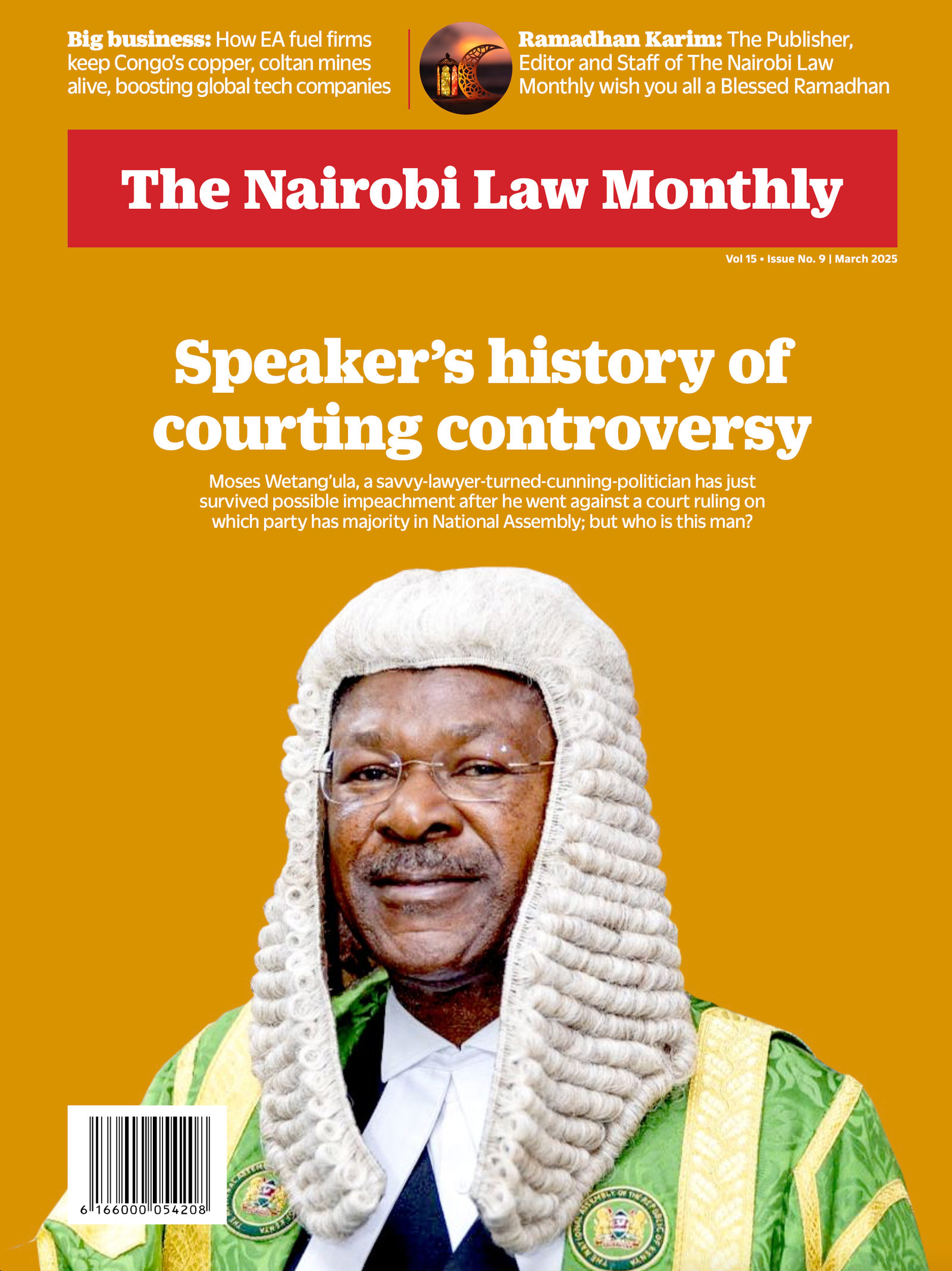By Dr Kariuki Maigua
The KRA ADR Framework was launched in June 2015 and revised in June 2019 to provide an internal process for KRA to amicably resolve and settle tax disputes outside the judicial process. The ADR Framework aimed at complementing the judicial and quasi-judicial mechanisms for resolving tax disputes in the tax laws “by introducing ADR as an additional and/or alternative means of resolving tax disputes.”
Importantly, the ADR Framework has helped to achieve alternative dispute resolution of tax disputes as envisaged and proposed under Article 159 (2) (c) of the Constitution of Kenya, 2010, section 28 of the Tax Appeals Tribunal Act, 2013 and section 55 of the Tax Procedures Act, 2015. However, with the enactment of the Tax Procedures (Settlement of Tax Disputes out of Court or Tribunal) Regulations, 2020, the place of the KRA ADR Framework is now exclusively guiding alternative dispute resolution (ADR) under the KRA Internal Dispute Resolution Mechanism (IDRM) before or in lieu of referral to the tribunal or the court.
The ADR envisaged under the framework is a voluntary, participatory and facilitated discussion of a tax dispute between a tax payer and the commissioner. Further, the KRA ADR Framework clarifies that it is in the form of facilitated mediation and not arbitration as envisaged by the Arbitration Act (Cap 49 of Laws of Kenya). This is because the Facilitator of the ADR has no power to impose any decision regarding the outcome of the tax dispute. This form of ADR is favoured over litigation because it gives parties autonomy to achieve settlement of their tax disputes on their terms.
According to KRA, ADR is preferable for resolving tax disputes in that it shifts focus from enforcement to trust and facilitation, avoids inordinate delays before conclusion of cases before courts and tribunals, is cost-effective and confidential especially where tax litigation has the possibility of having adverse impact on the business relations of the tax payer or may attract negative publicity for KRA. In addition, ADR is without prejudice in that if it does not succeed the discussions under its framework cannot be used against any party without express agreement. ADR also helps to preserve relationships between KRA and tax payers and also ensures higher compliance levels as parties are more likely to abide by the negotiated outcome. It also removes the specter of uncertainty associated with tax litigation over the outcome of a tax case for both KRA & the taxpayer. Alternative Dispute Resolution (ADR) of tax disputes is also encouraged in compliance with the constitution principle promoting negotiated settlement of appropriate disputes.
The ADR Framework expressly states that it does not negate the legal right of either party to appeal to the Tax Appeals Tribunal or the Court of Law. Thus, an aggrieved party must file appeal within the time stipulated under the law under the tax Procedures Act. This creates a dilemma in that while parties are pursuing ADR under the framework, the time is ticking and the party has a duty to comply with the stipulated timelines for filling appeal. The end result most tax payers would rather file their Tax Appeal and then seek out of court or tribunal settlement that take the risk of pursuing ADR within the framework even as the clock ticks against them.
The Commissioner is entitled to give taxpayer opportunity to engage ADR before issuing objection decision in case of a decision to amend assessment partially or decline to amend an assessment. In that regard, the timelines of the ADR are restricted to the time remaining in the time imposed by the Tax Procedures Act (of 60 days for Commissioner to make Objection Decision) and 30 days for Commissioner to make a review decision under the East African Community Customs Management Act (EACCMA) 2004.
The parties may engage a tax agent or legal advisor to assist in the implementation of the framework. On the other hand, an ADR Facilitator provides guidance to the discussion and need not be an expert in tax or law. The facilitators are bound to keep the process as simple and flexible as possible and as far as possible make it easy for each party to participate freely in the ADR discussions and adhere to the timelines. At the same time, they must remain neutral and maintain confidentiality of the process. Facilitators must also act independently, impartially and avoid conflict of interest.
In addition, the ADR Framework addresses issues of procedure during discussions. It provides for adjournments, documentation of the dispute in ADR, management and procedure of ADR sittings, termination of ADR discussions and the signing of ADR Agreement and the prerequisites for validity of such agreement. Finally, the ADR Framework lays down the suitability test of tax disputes for ADR which limits the scope of the disputes that may be referred to the process to purely factual disputes.

